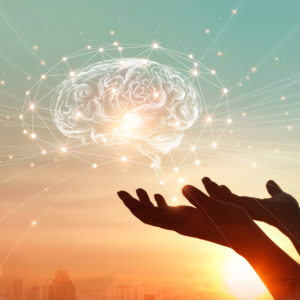The most well known theory regarding human needs is Maslow’s hierarchy of needs. Many people have heard of this if they have studied anything from child development to marketing and business. However, there have been many differing approaches to human needs over the last 80 years or so. I formulated this as a result of studying those theories that came before. Furthermore, I have studied human behaviour, neurology and psychology over many years in order to identify fundamental human needs.
This is a simple and straight forward description of the theory. There is a more detailed article on this subject if this piques your interest
A neuropsychological theory
Human neurology requires, above all else, the regulation of all of our systems. That is to say, to achieve regulation, balance, wellbeing requires regulation in all areas. These areas are our physiological systems, our sensory experiences, our emotions, and our psychology. In short, if one area is poorly regulated, then regulation of all other areas is impacted.
Click on the dots below in order to find information about physiological, sensory, emotional and cognitive regulation. Meanwhile, this article focuses on psychological regulation.






Psychological human needs
In order to achieve psychological regulation, we need to ensure we regulate all of our systems. In addition, we need to balance our needs for protection, predictability, connection, recognition, autonomy and novelty. Please note, that whilst every human being needs all of these things, they are all also individual. Therefore, how much or little of these aspects we need in order to feel regulated varies hugely between. Our personal neurology, psychology and personality determines our needs profile. This, consequently, impacts our behaviour. The balance of needs we require in order to maintain regulation also changes in different circumstances.
Regulation
Our neurology (the biological make-up of our brain) needs to be regulated, as detailed above. Moreover, our neurology so influences our psychology (the mental state governing our behaviour), that for psychological regulation, we need to ensure regulation of all other areas. Critically, we cannot achieve psychological regulation without also being physiologically, sensorily, emotionally and cognitively regulated.

Protection
Humans have a fundamental psychological need for protection. This includes, for example, a need to:
- Feel that they are able to protect themselves sufficiently
- Have others who can and will protect them when necessary
- Be in an environment in which they feel safe and protected
- Have the opportunity to protect and care for others.

Predictability
Humans have a fundamental psychological need for predictability. This includes a need to:
- Know, or have some idea of what is happening next
- Know, or have some concept of what the future looks like
- Understand what is expected of them
- Have a rhythm (set of similar patterns) to their life
- Have their day-to-day life happen at a pace that feels manageable.

Connection
Humans have a psychological need for connection. This includes needs, such as, to:
- Have reciprocal human relationships
- Have regular human contact
- Be loved and also love others
- Have a sense of belonging to a community
- Feel involved in what is happening around them.

Recognition
Humans have a psychological need for recognition. This includes a need to
- Be accepted for who they are, and how they see themselves
- Feel capable of contributing in a useful way to a community
- Feel that others view them as competent and offering a useful contribution
- Have their contribution reciprocated in equal value
- Have a valued role in the community.

Novelty
Humans have a psychological need for novelty. This includes, for instance, the need to:
- Have opportunities for exploration
- Develop themselves
- Pursue their interests
- Have new and varied experiences regularly
- Experience excitement.

Autonomy
Humans have a psychological need for autonomy. This includes the need to:
- Have personal freedom in how to live
- Do things for themselves
- Self-direct how and what they contribute
- Have their own ideas and beliefs about the world
- Have their own distinct personality.

A wheel of human needs; not a hierarchy
When we view human needs as a hierarchy we specify that we must meet the needs at the lower levels before we can meet the higher level needs. This can be useful in some circumstances. For instance, when supporting someone to learn in a classroom; they are better able to achieve self-development when they have met their physiological needs by going to the toilet.
However, it doesn’t always work that way. Have you ever been so excited about something you are working on that you forget to eat? I have. Likewise, people often remain in dangerous situations, such as war zones, even though they’re in danger. However, sometimes their need for recognition within a community where they’re valued and have a role, outweighs the physical danger.

Ultimately, it is not that physiological needs are more basic or lower than other needs. Rather it is that in some situations we have a higher requirement for physiological regulation. Psychological disregulation can sometimes undermine concentration. Similarly, in war zones, staying with a community providing aspects of safety, recognition and connection, can override physical safety. In these cases there are few, if any options that provide physical safety. Becoming a refugee is not a safe choice. Staying put, even in danger, may better meet the need for predictability too. Ever heard the phrase ‘better the devil you know’?
For these reasons, I consider human needs to be more like a spectrum or a wheel. Each need has its own personal scale in order to achieve balance or regulation. This ranges from high need to low need in any given situation and person.




Responses